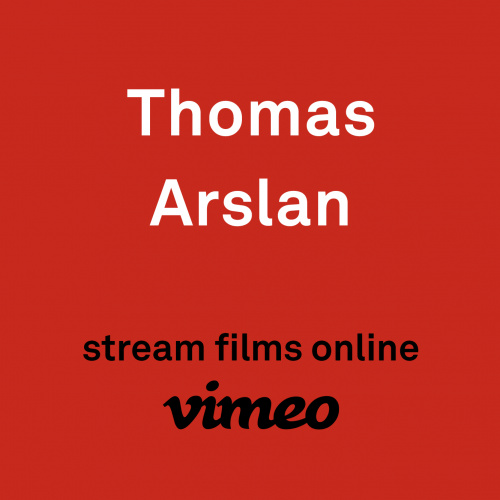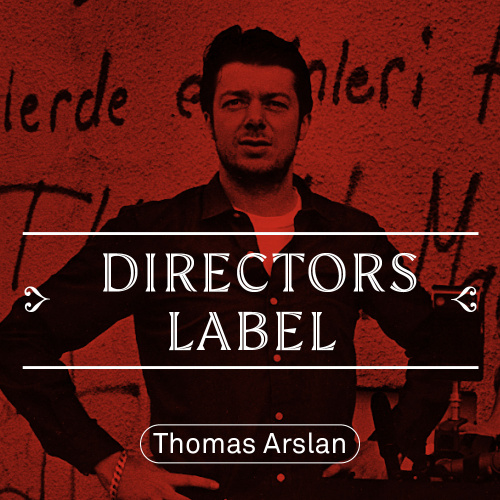
Dealer
GER 1998, 74 min
If you don’t want to fall out of grace with your contacts as a dealer, you must never be seen with an undercover cop. If you don’t want informers to trap you, don’t trust anyone. If you want to hold your family together, you will one day have to keep your promise to stop dealing.
Synopsis
Can and his girlfriend, Jale, live with their young daughter, Meral, in a tough Turkish neighbourhood of Berlin and barely manage to scrape enough money together for their existence. Can is a small-time dealer and errand-boy for drug boss Hakan, who has to keep his customers supplied within his narrowly staked out territory.
Jale, who works in the ware-house of a department store, has been pressing Can to give up this activity. Can, also fed up with his situation, sees a bright new beginning for himself and his family when Hakan offers him the prospective chance to run a bar on his very own. But Can has little control over the pressures that gradually begin to build up around him and soon finds himself floundering in quicksand...
DEALER is the second part of Thomas Arslan's “Berlin Trilogy”, which includes the films BROTHERS AND SISTERS (1997) and THE FINE DAY (2001).
Streaming-Info
Rent or buy the movie on our Vimeo channel.
Language: German, Turkish, Subtitles: German, English (optional)
Film kaufen
VOD
451-Vimeo
Awards and Festivals
Berlinale - Forum 1999: FIPRESCI Prize Forum of New Cinema and Prize of the Ecumenical Jury Forum of New Cinema
Additional Texts
Interview with the director
Gabriela Seidel: BROTHERS AND SISTERS is the first part, and DEALER is the second part of a trilogy about teenagers of Turkish descent, living in Berlin. Is DEALER a continuation of part 1?
Thomas Arslan: DEALER is a separate story. Except for the reappearance of a few characters, the protagonists are not identical with those in BROTHERS AND SISTERS. However, the film evolved from the work on BROTHERS AND SISTERS. In this sense, DEALER is a continuation on a related topic rather than a direct continuation.
G.S.: How did you get the idea for the script?
T.A.: While we were looking for actors for BROTHERS AND SISTERS, we met a number of people who were at least some of the time moving in the realm of petty criminals. One of these was meant to play a substantial role but he ended up going to a juvenile detention centre at the beginning of the shoot. I noticed something all these kids had in common: a mixture of vitality and fatalism, a very peculiar confusion. I was interested in this. This had no place in the film BROTHERS AND SISTERS, so it evolved into a separate project. I set myself the task of telling the everyday life of such a person. I knew the topic is full of clichés, especially the cliché of the 'criminal foreigner'. I asked myself whether it wouldn't be possible to cut through the cliché, even if one can't avoid it altogether. In other words, to use it as a starting point and to dissolve it gradually, so something else may become visible.
So because I was portraying characters of Turkish descent, it was very important to do it without any folkoristic detail or any statement about 'otherness'. Furthermore, it was important not to portray the main protagonist as a victim, or, alternatively, as a tough guy. In this context, it is also necessary to talk about the things which are too much of a challenge for Can. Despite taking full responsibility for his actions, he can't get a grip on his life.
G.S.: Tamer Yigit plays the main role in DEALER, and his peer group is composed of amateur actors. Some of them had parts in the first part of the trilogy. How did you meet them and why did you use amateur actors?
TA.: I had seen Tamer Yigit in the neighbourhood. Amongst other things, he is a musician. We talked to him during a concert and met some of his friends.
The decision to choose amateur actors for BROTHERS AND SISTERS had to do with the age group. All the main protagonists are under twenty. It is difficult to find professional actors in this age group, and I didn't want older actors pretending to be young. Also, if you are lucky, amateur actors will surprise you with non-standardized performances, gestures, intonation. This usually only happens with younger actors because their self-image isn't yet fixed. They are more open. Older amateur actors are different. I wasn't so lucky with them. That's why I used a few professional actors for DEALERS. After all, there are actors, who are really good to work with.
G.S.: DEALER is stylistically very different from the first part of the trilogy. BROTHERS AND SISTERS is more like a documentary.
T.A.: I don't try to have a particular style which I impose on each project as a kind of ready-made concept. I experiment and try to develop a form based on the material. I wasn't interested in representing a social milieu, but in describing the mental state it produces. I am not interested in social realism as seen in CHRISTIANE F. Valéry once wrote a beautiful sentence: The more beautiful the day, the more you feel the night. In this sense, DEALER is a beautiful film, with strong colours.
G.S.: What is it like to produce such a film in Berlin which deals with the life and reality of this city? Was it difficult to get funding for this film?
TA.: We received some money for research from the Filmboard Brandenburg. The main budget for the film came from ZDF, Mainz, from the 'Kleines Fernsehspiel'. They had also financed most of BROTHERS AND SISTERS. For me, it isn't easy to make a film in Berlin. Still, I do it because it is the city I live in and I know best. But it is difficult to avoid the excitement surrounding the capital and to direct one's eye to the periphery. Perhaps this is the reason why the majority of German films with similar topics are made in other cities.
GS.: Have you made plans for part three?
T.A.: Part three will deal with a 19-year old girl who has achieved almost everything she set out to do. She has achieved her goals despite great resistance. She organises her life according to her own plans. You could almost say she is happy. The 'almost' is the key. This is what keeps her from happiness. For happiness you need other people.
Quelle: 29. internationales forum des jungen films 1999
Watch Movie
VOD
451-Vimeo
Credits
Director and Screenplay
Thomas Arslan
With
Tamer Yigit, Idil Üner, Birol Ünel, Hussi Kutlucan, Lea Stefanel, Baki Davrak, Ramazan Coskun, Bilge Bingül, Fernando Canqui, Erhan Emre, Halit M. Bademsoy, Tim Wilde, Marquard Böhm, Angela Schanelec, Bülent Akil, Michael Tonke, Neco Celek, Sultan Meral-Sevim, Daniel Matysiak, Cemil Yurderi, Cengiz Koc, Isa Boskut
Director of Photography
Michael Wiesweg
Editor
Bettina Blickwede
Sound
Heino Herrenbrück
Music
Jack DeJohnette Bohren & Der Club of Gore, Jeff Mills
Production Design
Gabriella Ausonio
Costume Design
Anette Guther
Key Make-up Artist
Halise Baydar
Light
Theo Lustig
Script
Daniela Kinatede
1st AD
Annette Drees
Assistant Camera
Dariusz Brunzel
Assistant Editor
Henrike Bauer
Assistant Sound
Lasse Viehöfer
Location Manager
Robert Geisler
Set Manager
Christoph Wallmeyer
Production Manager
Martin Schlüter
Assistant Production
Gabriela Seidel
Commissioning Editor
Sibylle Hubatschek-Rahn
Producer
Käte Ehrmann
Produced by
Trans-Film, ZDF
World Premiere
11.02.1999, Berlinale - Forum
German theatrical release
18.03.1999








